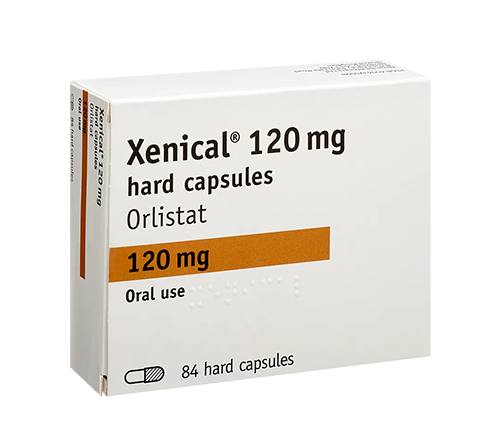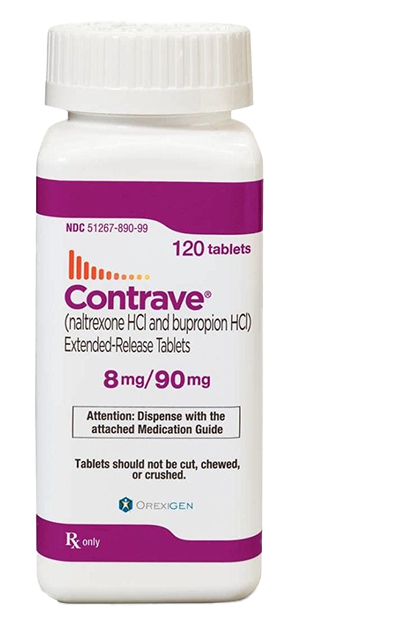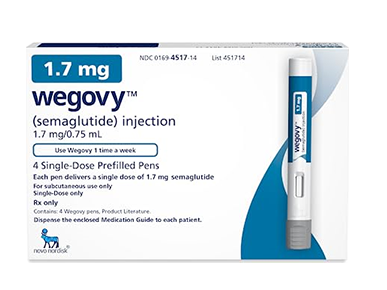- Obesity is a serious medical condition that puts you at higher risk of health outcomes including high blood pressure and type 2 diabetes.
- A diagnosis of obesity is often made using the BMI scale and/or other markers such as waist circumference.
- Many factors influence the development of obesity, including lifestyle, medications, medical conditions, and genetics.
- Management of obesity should first be attempted with a balanced diet and exercise but may require additional management with one of many FDA-approved weight loss medications.
Overview
Obesity is a chronic condition characterized by excessive body fat accumulation. It's a major public health concern in the United States, impacting millions of individuals. . Not only can it cause stress to the body, but it also changes your metabolism to put you at risk of a variety of serious health conditions, including diabetes, heart disease, high blood pressure, sleep apnea, and joint problems.
Weight gain leading to obesity is not simple. It is a long and complex process involving many factors including lifestyle, genetics, medications, other medical conditions, and your economic and social factors (including your income, where you live, your ethnicity, etc).
The main scale used to diagnose obesity is the body mass index (BMI) which is calculated with an individual’s weight and height. In general, obesity can be diagnosed in those with a BMI over 30 kg/m2, and severe obesity in those over 40 kg/m2. As this index is not perfect, there are additional tools such as waist circumference that may aid diagnosis.
There are a number of safe and effective methods to lose weight. The first and most sustainable weight loss strategy is to make long-term lifestyle changes, specifically healthy a diet and regular exercise. In more severe cases and for those not responding to diet and exercise, there are medications available to aid in your weight loss.
Prevalence
Obesity in the US has significantly increased, rising from 30.5% in the early 2000s to over 41.9% in 2020. This translates to over 100 million obese adults. Severe obesity has nearly doubled, from 4.7% to 9.2% during the same period.
Prevalence Factors:
- Demographics: Obesity is most prevalent among adults aged 40-59 and is higher in women across all age groups.
- Education: Individuals with a college degree or higher have 10% lower obesity rates.
- Geographic Variation: Rates exceed 40% in states like West Virginia, Louisiana, and Oklahoma, while lower rates (below 26%) are observed in D.C., Colorado, and Hawaii.
Causes
Obesity is a complex issue with multiple contributing factors. These factors often interact in intricate ways, making it difficult to pinpoint a single cause. Here are some of the key contributors:
Some of the FDA-approved indications of various birth control methods include:
Lifestyle
- Unhealthy eating patterns: Consuming too many highly processed foods, added sugars, and not enough fruits, vegetables, and fiber
- Lack of physical activity: Not getting enough exercise can lead to weight gain
Medical Conditions and Medications
- Conditions such as Cushing syndrome, polycystic ovary syndrome, and hypothyroidism can lead to weight gain
- Certain medications, including psychiatric drugs, steroids, and some types of hormonal birth control, can also cause weight gain
Genetics
If your parents or siblings are obese, you may have a higher genetic predisposition to weight gain
Socioeconomic Factors
Limited access to healthy food options and healthcare services in disadvantaged areas can contribute to obesity
Other Factors
- Age: Weight gain can become more challenging as we age due to changes in metabolism and physical activity levels
- Sleep: Insufficient sleep can disrupt hormones that regulate appetite and metabolism, leading to increased weight gain
- Stress: Chronic stress can lead to increased cortisol levels, which can promote fat storage, particularly around the abdomen
Risks of Obesity
Obesity can lead to a variety of serious health risks, including:
Cardiovascular Disease
- Heart Disease: Obesity can lead to high blood pressure, high cholesterol, and atherosclerosis (the buildup of plaque in the arteries). These conditions increase the risk of heart attack and stroke.
- Heart Failure: Excess weight puts extra strain on the heart, making it work harder to pump blood throughout the body.
- Used only when needed.
Type 2 Diabetes:
Obesity disrupts the body's ability to use insulin effectively, leading to high blood sugar levels. This can eventually lead to type2 diabetes.
Respiratory Problems
- Sleep Apnea: Obesity can contribute to sleep apnea, a condition where breathing repeatedly stops and starts during sleep.
- Asthma: Obesity can worsen asthma symptoms and increase the risk of developing asthma.
Musculoskeletal Problems
- Osteoarthritis: Excess weight puts extra stress on joints, particularly knees and hips, increasing the risk of osteoarthritis.
- Back Pain: Obesity can strain the back muscles and joints, leading to chronic back pain.
- Osteoarthritis: Excess weight puts extra stress on joints, particularly knees and hips, increasing the risk of osteoarthritis.
- Back Pain: Obesity can strain the back muscles and joints, leading to chronic back pain.
Other Health Issues
- Liver Disease: Obesity can lead to nonalcoholic fatty liver disease (NAFLD), which can progress to liver inflammation and scarring.
- Certain Cancers: Obesity is linked to an increased risk of several cancers, including breast, colon, endometrial, and kidney cancer.
- Mental Health: Obesity is linked to higher rates of depression, anxiety, and other mental health disorders.
- Reproductive Health Problems: Obesity can cause infertility and complications during pregnancy, such as gestational diabetes and preeclampsia.
The prevalence of obesity is very costly to the American healthcare system. Annually, the healthcare costs for those with obesity are an average of over $1,800 greater per person than individuals at a healthy weight. With the huge number of individuals who struggle with obesity in the United States, this cost reached over $170 billion in healthcare costs attributed to obesity in 2019 alone.
Diagnosis
Diagnosing obesity typically involves several steps and assessments by healthcare providers. Here are the key components:
Body Mass Index (BMI):
BMI is calculated using a person's weight and height. It is a common screening tool to categorize weight status.
- Underweight: BMI less than 18.5
- Normal weight: BMI 18.5–24.9
- Overweight: BMI 25–29.9
- Obese: BMI 30 or greater
- Severaly obese: BMI 40 or greater
Important Note: BMI is a screening tool, and it may not accurately reflect body fat percentage in all individuals. For example, very muscular individuals may have a high BMI despite having low body fat.
Waist Circumference
- Measuring waist circumference helps assess abdominal fat, which is a risk factor for obesity-related conditions.
- A waist circumference greater than 40 inches for men and 35 inches for women indicates a higher risk of obesity-related health problem.
Other Factors: In some cases, your doctor may consider other factors, such as family history, medical conditions, and lifestyle habits, when making a diagnosis.
Medications
If diet and exercise alone haven't been successful in achieving and maintaining weight loss, medication may be an option. However, it's crucial to remember that medication is most effective when used alongside a healthy lifestyle. This includes a balanced diet with plenty of fruits, vegetables, and whole grains, combined with regular physical activity. It's important to understand that medication is not a magic solution for weight loss. Sustainable weight management requires long-term commitment to healthy lifestyle changes.

Alli (orlistat)
Alli is the only FDA-approved weight loss product available without a prescription.
How it Works: Alli inhibits an enzyme called lipase, which is responsible for breaking down fat in your digestive system. By blocking lipase, Alli prevents your body from absorbing a portion of the fat from your meals.
Side Effects: The most common side effects are related to the undigested fat passing through your digestive system.
- Oily bowel movements
- Oily spotting from the rectum
- Urgent, frequent stools
Prescription Products
Most medications for obesity have been approved by the FDA under two possible situations:
- Adults with a BMI 30 kg/m2 or higher
- Adults with a BMI 27 kg/m2 or higher and at least one obesity-related risk factor (high blood pressure, diabetes, high cholesterol)
Most of these medications do not work for genetic obesity, as this requires specific treatment directed at the genetic cause rather than the obesity itself.

Xenical (orlistat)
How it Works: Xenical is a prescription weight loss medication that contains orlistat, the same active ingredient as the OTC product Alli. Xenical is double the strength but works in the same way: It inhibits lipase, an enzyme that breaks down fat. This prevents fat from being absorbed, reducing calorie intake.
When it's a Good Choice: May be suitable for individuals who have difficulty reducing fat intake through dietary changes alone.
Side Effects:
- Frequent bowel movements
- Oily stools or spotting
- Abdominal pain
- Vitamin deficiencies (as fat is needed for vitamin absorption)

Contrave (bupropion-naltrexone)
How it Works: Contrave affects brain chemicals that control appetite and cravings. It alters brain chemistry, reducing appetite and cravings by potentially decreasing the "reward" associated with eating.
When it's a Good Choice: May be helpful for individuals who struggle with emotional eating or have difficulty controlling cravings.
Side Effects:
- Nausea
- Headache
- Dry mouth
- Diarrhea

Imcivree (setmelanotide)
How it Works: Imcivree is an injectable medication specifically for individuals with obesity caused by dysfunction or deficienty in certan genes. It targets MC4 rececptors in the brain that regulate hunger, fullness, and energy use.
When it's a Good Choice: Approved for individuals with obesity caused by genetic conditions like POMC, PCSK-1, and LEPR deficiencies, and Bardet-Biedl syndrome.
Side Effects:
- Nausea
- Vomiting
- Diarrhea
- Darkening of the skin
- Injection site reactions

Qsymia (phentermine-topiramate)
How it Works: Qsymia combines two medications to reduce appetite and increase feelings of fullness. Phentermine suppresses appetite, while topiramate may reduce cravings and alter the taste of certain foods.
When it's a Good Choice: May be helpful for individuals who struggle with appetite control and overeating.
Side Effects:
- Tingling/numbness in limbs
- Dizziness
- Taste changes
- Difficulty sleeping
- Important Note: Not safe during pregnancy due to the risk of birth defects.

Saxenda (liraglutide)
How it Works: Saxenda mimics a naturally occurring hormone that regulates appetite. It increases levels of GLP-1, a hormone that suppresses appetite and promotes feelings of fullness.
When it's a Good Choice: May be helpful for individuals who struggle with appetite control and overeating.
Side Effects:
- Low blood sugar
- Gastrointestinal side effects (nausea, vomiting)
- Increased heart rate

Wegovy (semaglutide)
How it Works: Wegovy is similar to Saxenda and also works by increasing GLP-1 levels to suppress appetite. It mimics the action of GLP-1, a hormone that regulates appetite and blood sugar.
When it's a Good Choice: Approved specifically for chronic weight management in adults with obesity or overweight with at least one weight-related condition.
Side Effects:
- Gastrointestinal side effects (abdominal pain, diarrhea, nausea, vomiting)
- Tiredness
- Headache

Zepbound (tirzepatide)
How it Works: Zepbound combines two mechanisms to promote weight loss.
When it's a Good Choice: Approved specifically for chronic weight management in adults with obesity or overweight with at least one weight-related condition. It acts on two hormones: GLP-1 and GIP. This combination helps to reduce appetite, increase feelings of fullness, and regulate blood sugar.
Side Effects:
- Constipation
- Nausea
- Vomiting
- Diarrhea
Lifestyle Changes
The most effective and sustainable way to lose weight is to make changes to your lifestyle. This includes several different strategies including regular exercise, a balanced diet, stress management, and good sleep.
Regular Exercise
Being active is an extremely important aspect of weight loss. Exercise pushes your body to use up calories for energy rather than storing it as extra body weight. Exercise lowers blood pressure, helps with weight loss, and reduces your risk of heart attack, stroke, and certain types of cancers.
The Centre for Disease Control (CDC) recommends 150 minutes of “moderate-to-vigorous” exercise every week. This may include less intense activities like brisk walking and shoveling snow, as well as more vigorous activities such as running, jumping rope, and many sports.
Balanced Diet
A balanced diet is another essential component of weight loss. With all the fad diets that come and go, it can be difficult to determine what a “healthy diet” really is. In general, these diets can occasionally help you get the weight down, they can be hard on your body in the short term and are not usually sustainable. These diets often label certain food groups as “bad” or “off-limits” which can be unhealthy in the long-term for both your mind and body.
So what does a healthy diet actually look like? Some of the most common and well-researched recommendations include:
- Eat plenty of fruits and vegetables
- Choose whole grains
- Choose protein-rich foods
- Limit salt and sugar
- Limit processed foods and takeout
- Drink plenty of water
Stress Management
Although managing stress is much easier said than done, it is a very important aspect of weight management. Not only does stress make it more difficult to maintain a healthy lifestyle, but it has also been linked to a variety of negative health outcomes, including obesity. It is very common to turn to comfort foods during times of stress, and this can be a very difficult practice to change if it becomes a habit. However, if you can manage to transition that habit toward “healthier” hobbies, such as meditation, gardening, or reading, it may not only help you to lose weight but might also make you feel happier and healthier in the long-term.
Good Sleep
Poor sleep practices, specifically too little sleep, have also been implicated as a contributing factor to obesity. Most adults should get at least 7 hours of sleep each night, though this can be difficult to manage with busy schedules and/or poor sleep habits.
It is important to develop healthy sleep habits to both ensure you are getting enough sleep, but also getting good quality sleep. This kind of healthy sleep routine may include:
- Going to bed and waking up at a consistent time
- Watching what you eat before bed
- Limiting naps
- Creating a calm sleep environment
Even small changes can have a significant difference on not only your weight management, but you’re your overall health and wellbeing. If you feel as though you need help managing obesity, speak with your healthcare provider about the first or next steps in your journey.
Related Topics
Alli - An OTC medication for Weight Loss
Alli is a medication containing orlistat and the only FDA-approved over-the-counter medication for weight loss. This medication is intended for those who have previously attempted weight management through diet and exercise alone, and are now seeking pharmaceutical help.
Read moreMedications for Weight Loss
If lifestyle adjustments alone are not sufficient after a reasonable period, medications may be considered as an additional tool. However, it’s important to remember that even with prescription weight loss medications, continuing a healthy diet and regular exercise remains essential for long-term success.
Read moreOzempic vs Zepbound for Weight Management
Zepbound (Tirzepatide) stands out with its dual mechanism of action, targeting both GIP (glucose-dependent insulinotropic polypeptide) and GLP-1 receptors. Notably, Zepbound has been FDA-approved specifically for weight loss, exhibiting remarkable efficacy in clinical studies, often surpassing other medications in its category.
Read moreWhat to Do When Weight Loss Drugs Stop Working
When you maintain consistent dietary habits or exercise routines for a month without experiencing any weight loss, you have reached a weight loss plateau.
Read moreWhat Is The Healthy Way to Lose Weight?
The most effective approach to weight loss is a gradual one, aiming for a reduction of 1-2 pounds per week. This method ensures a sustainable, healthy journey rather than quick, drastic changes. Setting realistic goals and staying motivated are key to this process.
Read moreSupplements for Weight Loss
Many individuals perceive supplements as a more "natural" alternative to prescription medications, often driven by concerns about the artificial or chemical nature of pharmaceuticals. While it's true that many supplements are derived from natural sources like plants and herbs, it's important to recognize that being "natural" doesn't automatically equate to being better or safer.
Read moreWill Saxenda Help Me Lose Weight?
Saxenda, known by its generic name liraglutide, is a medication primarily used for weight management. It is specifically approved for adults who meet certain criteria based on their body mass index (BMI) and health conditions.
Read moreWill Xenical Help Me Lose Weight?
Xenical (orlistat) is a prescription medication designed to assist in weight loss. It's typically prescribed to individuals with obesity who haven't achieved their weight loss goals through diet and exercise alone.
Read more

